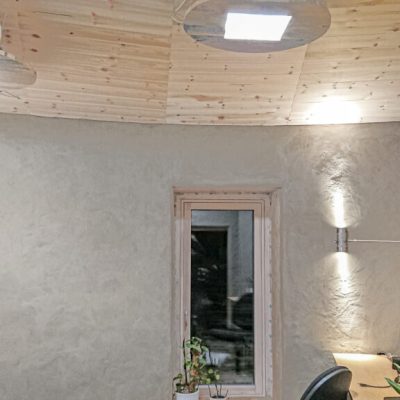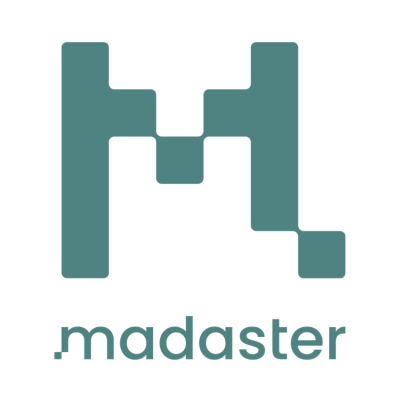Fritidsbanken
Web :
fritidsbanken.se
Contact :
Localisation : Sweden
Date of meeting : 12 june 2023
Maturity of the projet : Mature
- Functional economy
- Reuse
- Sports

Borrow sports items

Fritidsbanken – “free time bank” in English – is a Swedish NGO founded almost 10 years ago to promote the development of sports libraries throughout Sweden.
We had the opportunity to meet Henric, Fritidsbanken Sverige’s communications manager, and Edvin, an employee at Fritidsbanken Karlstad, one of the country’s largest sports libraries.
“We have three pillars at Fritidsbanken: basically all the items have been donated, everything is free and anyone can borrow them.”
Henric Byström, Head of Communications at Fritidsbanken Sverige
From a simple idea to a national concept
The story of Fritidsbanken can be told most authentically by Henric. It was his wife, Carina Haak, who came up with the idea 10 years ago. She found it strange that people could borrow books from municipal libraries but not sports equipment. What’s more, as the deacon of the small municipality of Forshaga, she was in regular contact with single mothers in financial difficulty who couldn’t provide their children with the equipment they needed for winter sports day at school.
So it was in autumn 2012 that the first equipment began to be collected in the municipality of Forshaga and the first Fritidsbank officially opened in January 2013, with some 200 items. Ten years later, there are 127 Fritidsbanken across the country with almost 500,000 items of sports equipment available for use.
These local Fritidsbanken are 90% managed by municipalities that have requested them, with the remaining 10% managed by sports associations, non profit organizations or charities. According to Henric and Edvin, in view of the ever-increasing demand, they will most likely all be managed by municipalities within a few years, with the latter putting them on the political agenda.

“The staff who work here are paid by the municipality because it was decided that this was an initiative in which money should be invested.”
Edwyn – employee at Fritidsbank Karlstad
All the municipalities and associations that run local Fritidsbanken are members of the NGO Fritidsbanken Sverige, which receives funding from the Swedish National Sports Confederation, the Swedish Central Association for the Promotion of Sport, the Värmland region, etc.
Where do the items come from ?
Basically all the equipment found in all the Fritidsbanken in Sweden is donated by private individuals, who are encouraged by the NGO to part with it if they are not using it. Sometimes companies, sport clubs and other organizations donate equipment as well.
“If you’re not using it, someone else could.”
Henric, Head of Communications at Fritidsbanken Sverige

Donations are collected directly at the Fritidsbanken and in some large towns, such as Karlstad, there are drop-off points more centrally located in the town so that everyone can donate without having to travel too far. Once an item has been donated, it is put into the digital system almost immediately if it is in good condition and there are no security concerns.
To open a new Fritidsbank, it’s recommended to have at least 1,000 pieces of equipment to ensure a complete offer and also to give a ‘wow’ feeling, as Edwyn describes it, which makes people want to buy from such places. That’s why establishments that have been around for longer donate some of their equipment to new establishments that sometimes find it difficult to establish themselves.
Who can borrow and how ?
As the pillars of Fritidsbanken state: everything is free and anyone can borrow. Edwyn explains that new visitors are always quite confused when they are told that they don’t need a membership, ID card or bank card. Anyone can come and borrow as much equipment as they like and the only thing they need to leave is a name and a phone number or email. In this way, even young children can borrow equipment on their own, simply by leaving the telephone number of one of their parents. After two weeks’ use, anyone can return the item, and it’s as simple as that.

“It’s so simple it’s almost deceptively simple.”
Edwyn – employee at Fritidsbank Karlstad
“We trust and hope that people will take what they like here, use it appropriately and come back with what they took. And it works 99% of the time.”
Henric, Head of Communications at Fritidsbanken Sverige
According to them, this way of proceeding encourages people to continue coming and it builds a relationship of mutual trust. Henric tells us about a man from Syria who came to borrow equipment and was shocked not to have to show his identity card. It was very important for him because it was “the first time since he arrived in Sweden that he didn’t have to prove his identity, he was simply trusted”.
Why use Fritidsbanken ?
There are many ecological and economic reasons to borrow equipment from a Fritidsbank. One of them is to extend the life span of objects that would otherwise have been thrown away, but also to prevent the unnecessary production of new objects.
“Many people think it’s for the poor, for those who can’t afford to buy their own things. This is the case if you think that buying your own items is the right thing to do. If you only use an item for one day a year, it doesn’t make much sense to buy it and store it for 364 days.”
Henric, Head of Communications at Fritidsbanken Sverige

Edvin explains that the aim of Fritidsbanken is not to take everyone’s equipment and make it available collectively. The idea is to allow everyone to discover different activities and to enjoy one so much that you end up feeling the need to buy your own equipment. “Let’s say someone wants to try ice skating, we have different sizes of skates that they can use over several weeks, then borrow new ones, and maybe in the end buying their own pair is the right choice for them because they love this activity,” explains Edwyn. The idea is to give these objects a new life through the people who are going to use them, and this ensures that when the person buys ice skates, they will actually be used because they were used here in the first place.
What’s more, Henric tells us that people who come for the first time are very surprised and realize that the equipment here often is of better quality than what they have at home, and in better condition.
“You realize that it’s not so strange to borrow this sort of thing, they’re just objects, but new objects much more expensive than books, here free, second-hand and in good condition.”
Henric, Head of Communications at Fritidsbanken Sverige
What are the future projects of Fritidsbanken Sverige ?
Partnerships with schools
One of the projects the teams are currently working on are long-term partnerships with schools. As schools are second homes for children, the idea is to use their free time for creative activities and games by making sports equipment available via Fritidsbanken. Approximately 20 partner schools have been able to set up their own activity libraries with equipment from Fritidsbanken, where the children of the school take it in turns to record who borrows which object. An increase in activities has been noted during the breaks, and it is also a way of reaching parents and teachers, as well as normalizing from an early age the fact of borrowing and sharing rather than owning.
Obtaining equipment adapted for people with disabilities
Henric reminds us that the cornerstone of the Fritidsbanken is that anyone can borrow items, and that includes people with disabilities. He explains that adapted sports equipment is both very expensive and therefore very rare as donations. However, as accessibility for all is one of the NGO’s core values, the teams are working on solutions other than donations to gain access to such equipment, such as partnerships with sports associations that have this type of equipment or the purchase of new equipment.
See new similar projects flourish
Finally, we asked them if they were thinking of extending the Fritidsbanken concept to other sectors, such as music, the creative arts, etc. In their opinion, given the knowledge that employees have to acquire in the field of sports equipment, it seems complicated to be able to diversify and offer such a range and such quality advice. However, they explain that such projects have already been set up: two Fritidsbanken Sverige member municipalities have opened a cultural bank where people can borrow musical instruments, painting or theater equipment, for example.




